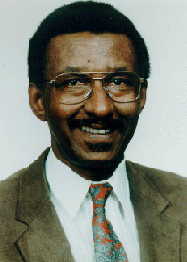|
|
Jewish World Review / August 13, 1998 / 21Menachem-Av, 5758
Walter Williams
DURING A MANY-YEARS-AGO HEATED EXCHANGE, a congressman told me that each
American owned public property. As an example, he insisted that I was part-owner of
the Washington Monument. I insisted it was none of mine.
We insisted back and forth until he asked me for the why of my position. My answer
was a question, "Can I sell my part?" My test of whether I own something is whether I
can sell it. Indeed, the working definition of private property is the rights held by the
owner to keep, acquire and dispose of property.
Private property serves a vital social function often ignored or trivialized. You don't have
to be a keen observer to notice that privately owned property tends to receive better
care than communally owned property. I've often said that I don't care that much about
future generations. After all, what has a kid who's going to be born in 2050 done for
me? If he hasn't done anything
My actual conduct belies that sentiment. I own a nice home that is well cared for.
Trees have been planted, rooms added, and many other improvements have been
made that will outlast me and be available for that kid born in 2050. Part of the reason I
made sacrifices in current consumption to improve my house is that the longer it
provides housing services, the more I get when the house is sold.
Would there be the same set of caring and improvement incentives if the government
owned my house, or if there were a 75 percent transfer tax when I sell? Obviously,
anything that reduces my property rights in the house weakens my incentives to do the
socially responsible thing: use carefully and conserve scarce resources. If the house is
cared for, the market rewards me with a high selling price. If it's not, the market
punishes me with a low selling price. Private property rights, coupled with a free
market, forces me to behave as if I actually did care about that 2050 kid.
That's one of the blessings of the free market: People serve their fellow man without
coercion or caring. For example, I think it's a wonderful thing that Texas cattle ranchers
and Idaho potato farmers take the time and effort to ensure that New Yorkers have
beef and potatoes. Do you think they do it because they care about New Yorkers?
They may hate New Yorkers, but they make sure there's beef and potatoes on New
York supermarket shelves.
The why is easy. They want more for themselves. In a free market, the best way to
have more for yourself is to serve others. How much beef and potatoes do you think
New Yorkers would have if it all depended on love and caring? I'd fear for New
Yorkers.
Think about the millions of goods and services that others produce for us, whether it's
cars, clothing, food, entertainment or shelter, and think about their motives. You'll
conclude that most good things get done as a result of self-interest, profit motive,
private property rights and exchange opportunities. Think about the things that we are
dissatisfied with, such as public schools, post office, police services and vehicle
registration. There's an absence of profit motive and private property rights.
The free market and private property rights do not produce a Utopia; we'll have to wait
for Heaven for that. But here on Earth, private property rights and free markets beat
any other social arrangement in serving mankind's
 Yours or mine?
Yours or mine?
 for me, how then am I obliged to do anything for him?
Where's the quid pro quo?
for me, how then am I obliged to do anything for him?
Where's the quid pro quo?

8/05/98: I do my job well, so that means I can....
7/29/98: Education production